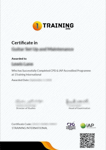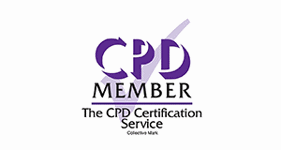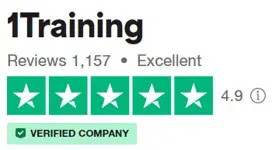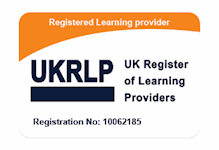
Essentials of Marketing Research - Level 5
Free E - Certificate Included |Access for 365 days | No Hidden Fee
1 Training
Summary
- Exam(s) / assessment(s) is included in price
- TOTUM card available but not included in price What's this?
Overview
Essentials of Marketing Research - Level 5
If you wish to learn about market research and the different ways organisations can approach market research, here’s an excellent course for you. Essentials of MarketingResearch Level 5 is designed to teach individuals how to acquire valuable information and based on your findings to make important decisions. You will be introduced to the process of market research, scaling and measurement and the different forms of scaling. Learn to analyse your own marketing strategies and competitor marketing strategies and become a master of data-driven research.
The Essentials of Marketing Research Level 5 will provide the foundation you need to advance in your current role or explore new and potential opportunities. There are key topics discussed in this course such as how to obtain information for market research, the data collection process, and preparation and analysis.
The Essentials of Marketing Research Level 5 course offers essential information and clear descriptions on data analysis methods used in market research to derive the best outcome. This is a CPD accredited course that will demonstrate to potential employers your dedication to continuous learning, and the chance to excel in the field.
Why You Should Consider Taking this Course at 1Training?
1Training is a leading online provider for several accrediting bodies, and provides learners the opportunity to take this exclusive Course awarded by CPD. At 1Training, we give our fullest attention to our learners’ needs and ensure they have the necessary information required to proceed with the training.
Learners who register will be given excellent support, discounts for future purchases and be eligible for a TOTUM Discount card and Student ID card with amazing offers and access to retail stores, the library, cinemas, gym memberships and their favourite restaurants.
Learning Outcomes
- Learn how to prepare, conduct and analyse data
- Know how to analyse your competitor’s marketing research
- Gain insight into the psyche of consumers
- Learn the fundamentals of marketing research
- Analyse existing marketing strategies in order to improve them
- Earn a recognised qualification to help pursue new job opportunities
CPD
Course media
Description
Course Curriculum
Module 01 : Introduction To Marketing Research: Scientific Research Approach And Problem Definition
- Introduction
- What is the Marketing Research?
- Marketing Research
- The need for marketing research
- Marketing research defined
- The scientific marketing research process
- Phase wise marketing research process
- Defining a problem
- The importance of defining a right problem
- Converting management dilemma into a research question
- What marketing research cannot do
- Conclusion
Module 02 : Exploratory Research Design
- Introduction
- Research design
- Importance in research
- Classification of research designs
- Differences between research designs
- Secondary data sources
- Exploratory research design
- In – depth interviews
- Focus groups
- Objectives of focus groups
- Advantages of the focus group technique
- Projective techniques
Module 03 : Conclusive Research Design
- Conclusive research design
- Comparison of research designs
- Descriptive design
- Cross-sectional design
- Longitudinal design
- Advantages and disadvantages of cross
- sectional and longitudinal designs
- Causal designs
- Survey methods
- Personal interviews
- Telephone interviews
- Mail interviews
- Online interviews
- Observation
- characteristic of observation techniques
- advantages
- disadvantages
- Methods of observation
Module 04 : Sampling
- What is the meaning of Sampling?
- Importance of sampling in marketing research
- Sampling: basic constructs
- Determining sample size
- Classification of sampling techniques
- Classification of sampling techniques
- Probability sampling techniques
- Simple random sampling
- Systematic random sampling
- Stratified sampling
- Cluster sampling
- Nonprobability sampling techniques
- Convenience sampling
- Judgement sampling
- Quota sampling
- Snowball sampling
- Selecting an appropriate sampling
Module 05 : Measurement And Scaling
- What is measurement and scaling?
- Importance of measurement and scaling in marketing research
- Scales of measurement: fundamental properties
- Assignment property
- Order property
- Distance property
- Origin property
- Primary scales of measurement
- Nominal scale
- Ordinal scale
- Interval scale
- Ratio scale
- Comparative and non-comparative scaling
- Classification of scaling techniques
- Comparative scaling techniques
- Paired comparison scaling
- Rank order scaling
- Constant sum scaling
- Q-sort
- Non-comparative scaling
- Continuous rating scale
- Itemised rating scale
- Likert scale
- Semantic differential scale
- Stapel scale
- Selecting an appropriate scale
- Scale evaluation
- Scale evaluation classification
- Validity
- Reliability
- Generalisability
Module 06 : Questionnaire Design
- What is the meaning of Questionnaire design?
- Significance of questionnaire building
- Process of questionnaire design
- The generic structure in developing a questionnaire
- Specification of the information needed in a researchable format
- Selection of interview method
- Determination of question composition
- Determination of individual question content
- Developing question order, form and layout
- Pilot testing the questionnaire
Module 07 : Data Preparation And Preliminary Data Analysis
- What is the meaning of Data preparation and preliminary data analysis
- Survey fieldwork and data collection
- Nature and scope of data preparation
- Editing
- Coding
- Data entry
- Data cleaning
- Preliminary data analysis
- Descriptive analysis process
- Assessing for normality and outliers
- Hypothesis testing
- Generic process for hypothesis testing
- Formulate the hypothesis
- Select an appropriate test
- Classification of Univariate and Multivariate techniques
- Select the desired level of significance
- Compute the calculated difference value
- Obtain the critical value
- Compare the calculated and critical values
- Marketing research interpretation
Module 08 : Report Preparation And Presentation
- Introduction about Report preparation and presentation
- Importance of marketing research report
- Reporting the results: key issues to remember
- The generic marketing research report
- Format for a generic marketing research report
- What not to do when writing reports
- Report presentation
Method of Assessment
In order to qualify in the course ‘Essentials of Marketing Research Level 5’ successfully, learners will take an online test with each module being rounded off with multiple-choice questions. This online test is marked automatically, so you will receive an instant grade and know whether you have passed the course.
Certification
Upon the successful completion of the course, you will be awarded the ‘Essentials of Marketing Research Level 5’ Certificate by CPD.
Access Duration
The course will be directly delivered to you, and you have 12 months access to the online learning platform from the date you joined the course. The course is self-paced and you can complete it in stages, revisiting the lessons at any time.
Awarding Bodies
CPD is a leading awarding body in the United Kingdom that meets an excellent standard of high quality education. CPD is committed towards the enhancement of proficiency and personal skills in order to develop learners’ skills and abilities. CPD ensures that both practical and academic qualifications assist individuals to re-skill or up-skill and maintain a competitive advantage in their chosen industry.
Who is this course for?
This course is recommended for,
- Business Professionals
- Marketing Analysts
- Data Analysts
- Market Researchers
Requirements
- Learners should be over the age of 16, and have a basic understanding of English, ICT and numeracy.
- A Level 4 or above qualification is desired
- A sound educational background is recommended
Career path
- Business Professional – £90,000 (Approximately)
- Marketing Analyst – £75,000 (Approximately)
- Data Analyst – £75,000 (Approximately)
- Marketing Researcher – £78,000 (Approximately)
Questions and answers
Currently there are no Q&As for this course. Be the first to ask a question.
Reviews
Currently there are no reviews for this course. Be the first to leave a review.
Legal information
This course is advertised on reed.co.uk by the Course Provider, whose terms and conditions apply. Purchases are made directly from the Course Provider, and as such, content and materials are supplied by the Course Provider directly. Reed is acting as agent and not reseller in relation to this course. Reed's only responsibility is to facilitate your payment for the course. It is your responsibility to review and agree to the Course Provider's terms and conditions and satisfy yourself as to the suitability of the course you intend to purchase. Reed will not have any responsibility for the content of the course and/or associated materials.






